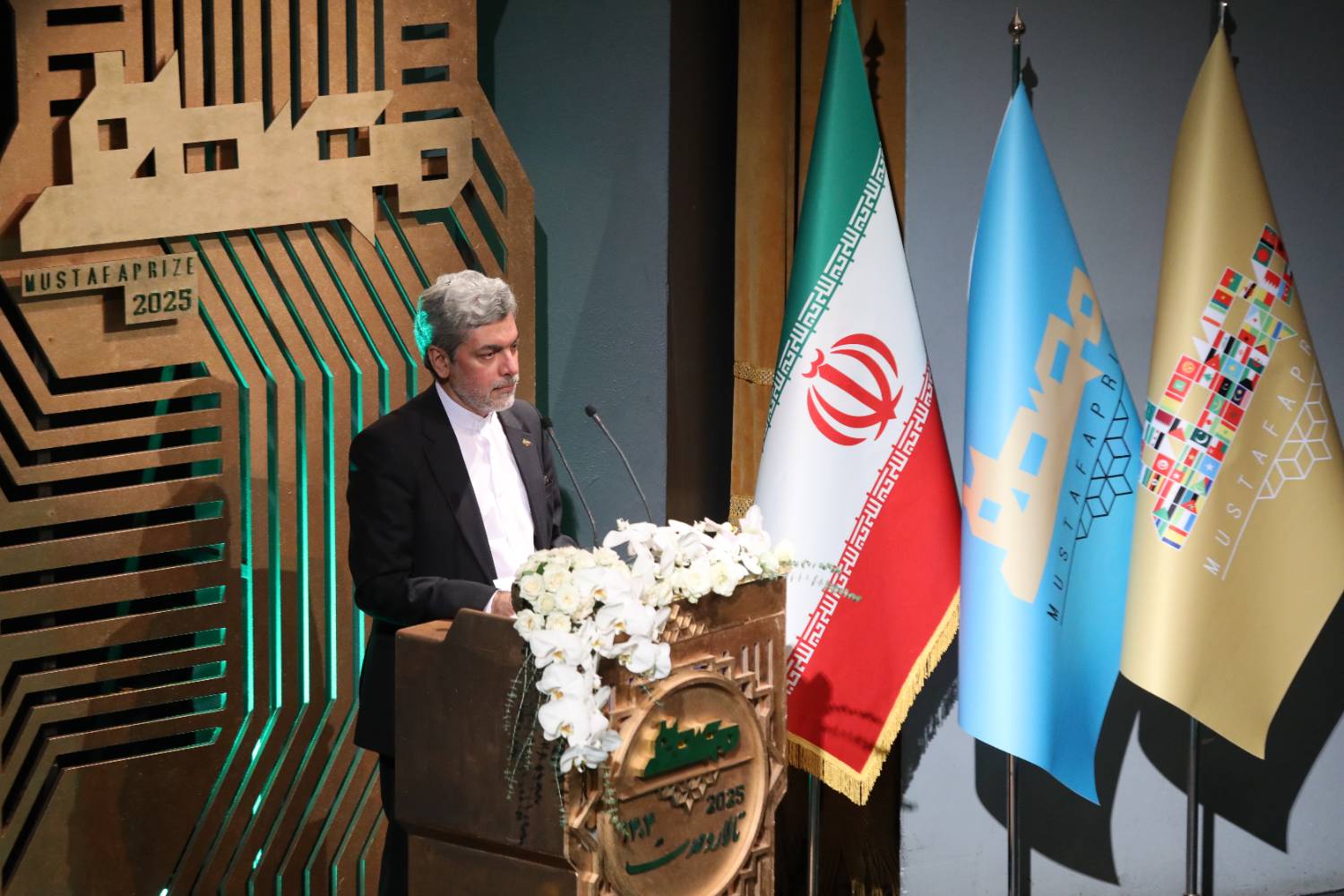Six Editions of the Mustafa (pbuh) Prize: Honoring 19 Scientists from 10 Countries


The Secretary of the Mustafa (pbuh) Prize Policy Council, at the closing ceremony of the sixth edition of the Mustafa (pbuh) Prize, highlighted the achievements of the previous five editions, stating: In these editions, 19 outstanding scientists from 10 countries were honored.
MSTF Media reports:
The closing ceremony of the sixth edition of the prize was held on the evening of Monday, September 8, 2025, at the Vahdat Hall in Tehran, attended by Dr. Hossein Afshin, Vice President for Science at the President's Office; Dr. Ali Akbar Salehi, Chairman of the Board of the Mustafa (pbuh) Science and Technology Foundation; Mehdi Safarinia, Secretary of the Mustafa (pbuh) Prize Policy Council; Muhammad Iqbal Chaudhary, Secretary-General of the Standing Committee on Scientific and Technological Cooperation of the Organization of Islamic Cooperation (COMSTECH); as well as the selected laureates of this edition and scientists from the world of Islamic science and technology.
During the event, Mehdi Safarinia, Secretary of the Mustafa (pbuh) Prize Policy Council, delivered a speech outlining the objectives and achievements of the event. He said: Naming this prize after the Prophet of Islam (pbuh) truly reflects his character as a builder of societies and civilizations—a Prophet who embodied divine mercy for all the worlds and, by emphasizing the pursuit of knowledge, rational thinking, and the flourishing of ideas, has inspired scientific and cultural movements throughout history.
He added: The laureates of this prize have played a significant role in advancing the level of science and addressing fundamental human challenges through their innovative research and groundbreaking achievements. Their works not only expand the frontiers of knowledge but also, through practical applications, contribute to improving health, the environment, and the development of cutting-edge technologies—and this impact will endure throughout history.
Safarinia, referring to the performance of the previous five editions of the prize, noted: In these editions, 19 outstanding scientists from 10 countries were honored—scientists whose achievements, beyond pushing scientific boundaries, have had a tangible impact on human life. These achievements span diverse fields: from medicine and health, including the development of preventive, diagnostic, and therapeutic methods for diseases (such as nanotechnology-based vaccines and targeted drugs), to rapid cancer detection technologies and organ transplantation; energy and the environment, with advanced water purification solutions; information and communication technology, featuring novel algorithms and advanced optical communication codes; and innovative theories in fundamental physics.
He continued: Drawing inspiration from the brilliant experience of the previous five editions, this year the "Young Scientist Medal" was established to honor and encourage the next generation of leading technologists in the Islamic world. This promising initiative is supported by the valuable endowment from Professor Omid Farokhzad and the laureates from past editions of the prize. The Young Scientist Medal will be awarded every two years to innovative scientific works presented by elites under 40 years old from the Islamic world that contribute to improving human life.
The Secretary of the Mustafa (pbuh) Prize Policy Council, describing the strategic approach of the prize, stated: Focusing on emerging and future-oriented fields—such as precision medicine, artificial intelligence and big data, clean technologies and renewable energy, and quantum technologies—is an intelligent response to the challenges and opportunities facing the Islamic world. These fields not only stand at the forefront of global development but are also directly linked to the vital needs of Islamic countries in areas like health, security, sustainable development, and modern governance. Referring to the mission of the Mustafa Foundation, he emphasized: This foundation has succeeded in fostering synergy and enhancing the capacities of key players in the scientific ecosystem, planting the seeds for an effective and expansive network of elites, researchers, and innovators in the Islamic world and beyond. All of this comes at a time when, over the past two years, the world has witnessed the catastrophe of the destruction of university and health centers in Gaza, as part of the Islamic world—an event that has sparked admirable global outrage and solidarity from communities, scientists, and thinkers worldwide.
In concluding his remarks, Safarinia expressed gratitude to "the members of the scientific and review committees, the members of the Policy Council, the ambassadors and collaborators of the Mustafa Foundation in various countries, and the real and legal supporters of this great movement."